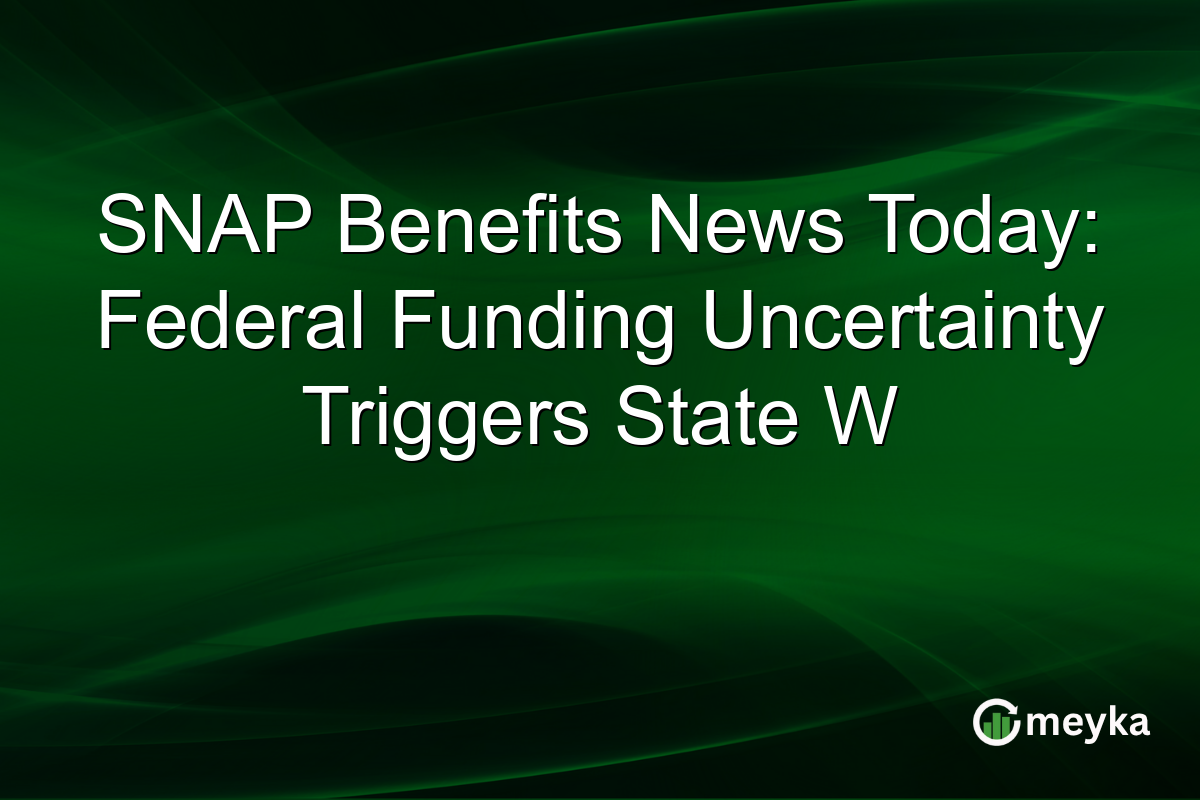SNAP Benefits News Today: Federal Funding Uncertainty Triggers State W
SNAP benefits, a vital support for millions of low-income Americans, are currently at the center of federal funding controversies. As budget negotiations stall in Congress, fears of SNAP benefits cuts are escalating. This uncertainty not only affects food benefits but also drives states to prepare for possible welfare disruptions. It’s a critical moment for the national discussion on social safety nets.
The Federal Funding Standstill
Budget talks in Washington face delays, raising questions about SNAP (Supplemental Nutrition Assistance Program). The federal government shutdown affecting SNAP could lead to benefits reductions. This issue impacts families relying on food stamps to meet their daily needs. As political leaders debate, the vulnerability of social safety nets comes to light. Read more about potential cuts here. States are watching closely, noting the potential for disruptions in their welfare programs. The stakes are high for millions relying on SNAP for food security.
State Contingency Plans
States have started to devise plans anticipating possible federal funding issues. Many officials, fearing food stamp reductions, are exploring state-level solutions to cushion the impact. This situation exposes the dependence on federal funding for welfare programs. For example, some states are setting aside reserve funds, while others negotiate with local nonprofits for emergency food supplies. As states brace for federal shortfalls, the broader impact on local economies and food banks intensifies. These actions underscore the depth of uncertainty looming over SNAP beneficiaries.
Impact on Low-Income Americans
Millions of low-income families are directly affected by potential SNAP benefits cuts. The federal government shutdown SNAP funding creates a ripple effect, leading to challenges in accessing basic needs. There is growing concern among social workers and advocacy groups about the increase in food insecurity. The implications of reduced assistance are far-reaching, affecting not only families but also communities who support them. States and non-profits are pushing for alternative solutions to mitigate the impact, illuminating the crucial role of safety nets in poverty alleviation.
Final Thoughts
The current uncertainties in SNAP benefits highlight the fragile balance of federal and state responsibilities in maintaining social welfare. As states prepare for potential budget gaps, the pressure mounts on Congress to resolve their differences and protect essential services. For millions of Americans, SNAP is a lifeline. Efficient resolution of these funding challenges is critical not just for beneficiaries but also for the health of the broader economy. It is a timely reminder of the importance of stable and sufficient support systems.
FAQs
Potential SNAP benefits cuts could lead to increased food insecurity. Families may struggle to access nutritious food. States might need to find alternative solutions like emergency funds or food bank partnerships.
States are preparing contingency plans for possible funding cuts. This includes setting aside reserves and partnering with nonprofits. These actions aim to buffer the impact on local communities and ensure continued support.
During a federal government shutdown, SNAP beneficiaries might face delays or reductions in their benefits. It highlights the need for local government and nonprofit interventions to meet immediate needs.
Disclaimer:
This is for information only, not financial advice. Always do your research.






